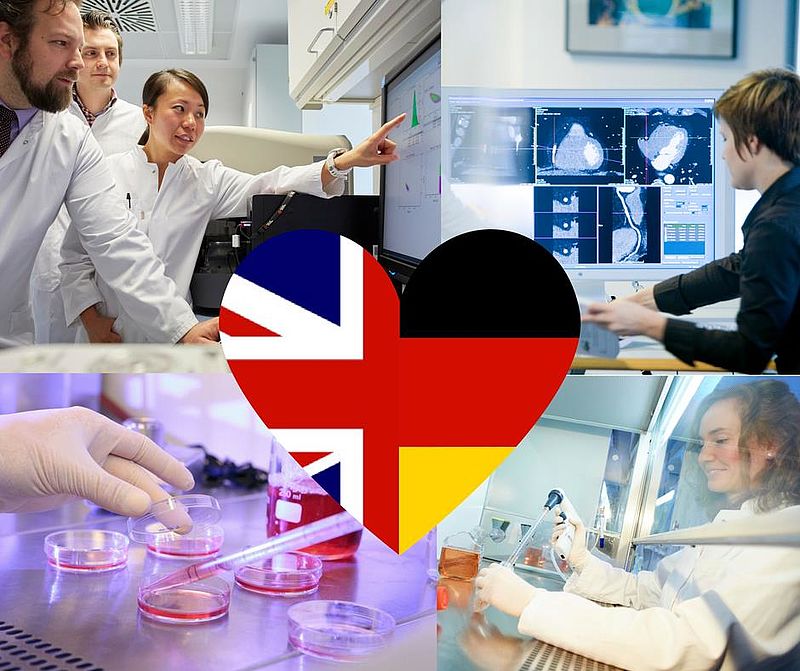In many cases, genetic tests can now be used to identify the genetic causes of heart diseases, such as heart failure, heart rhythm disorders, and heart malformations. The underlying genetic defects can be corrected in the laboratory using novel approaches with the so-called genetic scissors to restore heart function. In contrast to classical drugs, the use of the genetic scissors promises a final repair of the underlying defect.
To be able to apply the genetic scissors approach to the treatment of heart diseases in the hospital, the Leducq Foundation is funding a transatlantic network of excellence "Editing the Failure Heart" at the University Medical Center Göttingen (UMG). DZHK scientist Prof. Dr. Wolfram-Hubertus Zimmermann, Director of the Institute of Pharmacology and Toxicology, coordinates the network. The consortium of internationally leading groups in genome editing and modeling of heart diseases from Göttingen, Great Britain, the Netherlands, and the USA will receive 6.5 million US dollars (5.9 million euros) over five years to prepare the way to clinical application. Funding by the Leducq Foundation will start on 1 January 2021.
Background
After many years of research, the first gene therapy drugs worldwide are currently transferred into clinical application. For example, in the United States, gene therapy with the drug Zolgensma™ has already been approved for the treatment of children with spinal muscular atrophy. A first gene scissors approach for the treatment of Leber congenital amaurosis, a hereditary visual impairment leading to blindness, has been in clinical trials since September 2019. The partners of the network coordinated by Prof. Zimmermann have contributed significantly to the development of gene scissors applications in Duchenne Muscular Dystrophy. A clinical application in genetically determined cardiac diseases seems possible and should be accelerated by the newly formed Leducq network.
The research project
The research project ranges from the identification of mutations that can be corrected using genetic scissors technology, the development of new "tools" for genome editing and preclinical tests of safety and efficacy to the actual planning of clinical studies. The network has already started its joint activities.
"Within the Leducq network, we want to bring therapeutic genome editing for the treatment of hereditary and non-hereditary heart diseases into the clinic. As a basis for this, we have built up a technology pipeline on the Göttingen campus which, in addition to the development of new genetic scissors approaches, will above all enable the testing of safety and efficacy in humans," says Prof. Dr. Wolfram-Hubertus Zimmermann.
Basic, translational, and clinical scientists work together in the international consortium. The research network combines expertise in the identification and definition of the role of genetic mutations in heart diseases, the development of tools for genome editing and gene transfer, the preclinical testing of gene scissors approaches on human heart tissue grown in the laboratory as well as in animal models that are of central importance for clinical application. From the Göttingen Campus, the German Primate Center (DPZ) - Leibniz Institute for Primate Research is involved in addition to the University Medical Center Göttingen.
"It is crucial that, together with our network partners, we have extensive experience in the transfer of novel forms of therapy into clinical applications. To achieve translation into clinical application, we will work in close contact with the responsible regulatory authorities in Germany, Europe, and the United States to develop an ethically sound and safe route for effective gene editing in heart failure," said Prof. Dr. Zimmermann. "Besides, our merger as the Leducq network will enable the important exchange of scientists and clinicians between our groups. Our goal is to train a new generation of developers and users of therapeutic genome editing to accelerate the transfer of this exciting development into clinical care".
Scientific contact: Prof. Dr. Wolfram-Hubertus Zimmermann, Institute for Pharmacology and Toxicology, University Medicine Göttingen, w.zimmermann(at)med.uni-goettingen.de
Source: Press Release University Medicine Göttingen



